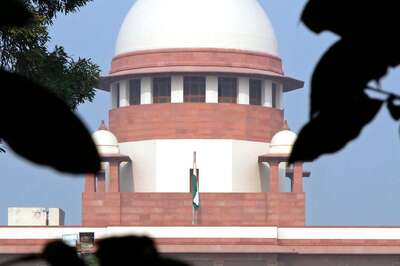
views
New Delhi: Pakistan on Tuesday expressed deep concern over India’s ASAT test saying that the space debris created it has increased the risk of collision with the International Space Station.
“This ASAT test should be a matter of grave concern for the international community not only in terms of generation of space debris but also because of its ramifications for long term sustainability of peaceful space activities,” the office of Pakistan's Official Spokesperson said in a press release.
Prime Minister Narendra Modi on March 27 had announced that India had demonstrated anti-satellite missile capability by shooting down a live satellite. Addressing the nation, the prime minister said India's action was not directed against any country.
Pakistan's press release noted that Pakistan considers would also be wrong to ignore the military dimension of the test and its implications on the global and regional peace, stability and security.
The press release comes after NASA administrator Jim Brindenstine pointed out that NASA had identified 400 pieces of orbital debris from India’s anti-satellite test that posed a risk to the ISS which was launched way back in 1998 and has seen over 54 crewed missions.
The NASA administrator had also pointed out that a similar test conducted by China in 2007 had posed a greater risk than the recent Indian test.
However, India has positively responded to the concerns of the US. Tapan Misra, senior advisor to ISRO chairman told the Indian Express on Tuesday that Indian scientists will not do anything to shame India and the debris from the “Mission Shakti” experiment will burn out in the next six months.
Nevertheless, India’s westward neighbour, Pakistan has said that it remains a strong proponent of non-militarization of outer space.
“We will continue to work with like-minded countries to address gaps in the international legal regime governing the exploration and use of outer space with a view to ensuring that no one threatens peaceful activities and applications of space technologies for socio-economic development,” the press release added.




















Comments
0 comment